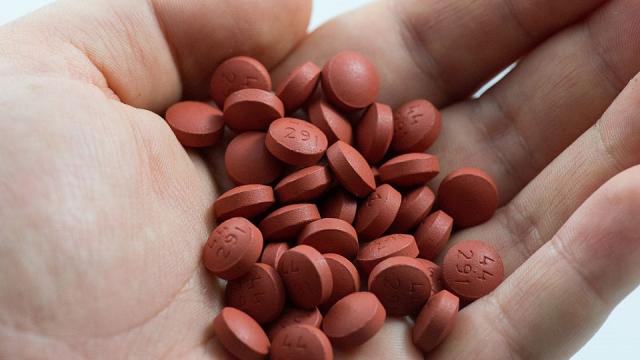Saying your olive oil is sub-standard isn’t an accusation, it’s just a probability. Adulterated olive oil is extremely common and surprisingly hard to spot. If you’re curious, you might want to grab a bottle of ibuprofen and do a taste test.
Good olive oil is relatively expensive, whereas bad olive oil and canola oil are relatively cheap. Dose one with the other, and you can increase your profit margins, which is what a very larger percentage of olive oil makers do. For a while, olive oil was the most adulterated agricultural product in Europe.
A good way of mixing cheap oil into good olive oil is “deodorisation”. Deodorisation is usually a heating process that removes aromatic compounds from other oils, from second-rate olives, or strongly-smelling nuts, while leaving behind few traces that a chemist would be able to detect.
There isn’t a way for the home chemist to figure out if their olive oil is 100 per cent the real deal, but the best way to taste test a brand involves comparison — just not comparison with other olive oil. Instead, get a bottle of ibuprofen.
The similarity between good olive oil and ibuprofen was first discovered by the people making ibuprofen. After working hard on an acceptable substitute for aspirin, one of the chemists, Gary Beauchamp of the Monell Chemical Senses Center, happened to vacation in Italy and attended an olive-oil tasting. He and most of the other oil amateurs found themselves coughing after a few sips. The oil wasn’t exactly peppery or hot, but it left a kind of spicy burn at the back of their throats. He’d experienced such a burn before, while chewing and swallowing his own product.
Both ibuprofen and aspirin decrease inflammation by taking out two enzymes, COX-1 and COX-2. These enzymes, if left to their own devices, would stimulate the formation of prostaglandins, hormone-like chemicals that cause inflammation. Aspirin binds irreversibly to COX-1 and COX-2. Ibuprofen binds only temporarily to the two enzymes. Both substances are good at keeping inflammation down, but only ibuprofen caused throat burn — or so its discoverers thought.
When the researchers at the Monell Center started looking at olive oil, they found that it produced the same burn, and they isolated the chemical responsible. After naming it oleocanthal, they took a closer look at it. Although it didn’t have a structure anything like ibuprofen, it worked pretty much the same way — and apparently tasted the same.
Since then, other tests have shown that oleocanthal has several positive properties. In addition to keeping inflammation down, one intriguing recent study showed that under some circumstances it may kill cancer cells. Some speculate that olive oil might be one of the secrets to the health of people who follow the famed “Mediterranean Diet”.
So if you are wondering if your olive oil is a fake, chew a little ibuprofen, then down a glug of oil, and see if they burn the same way.
